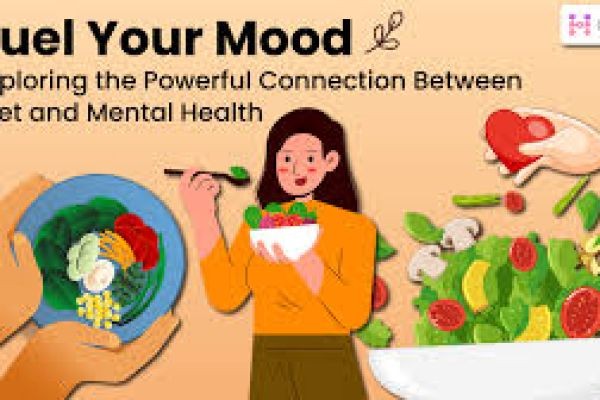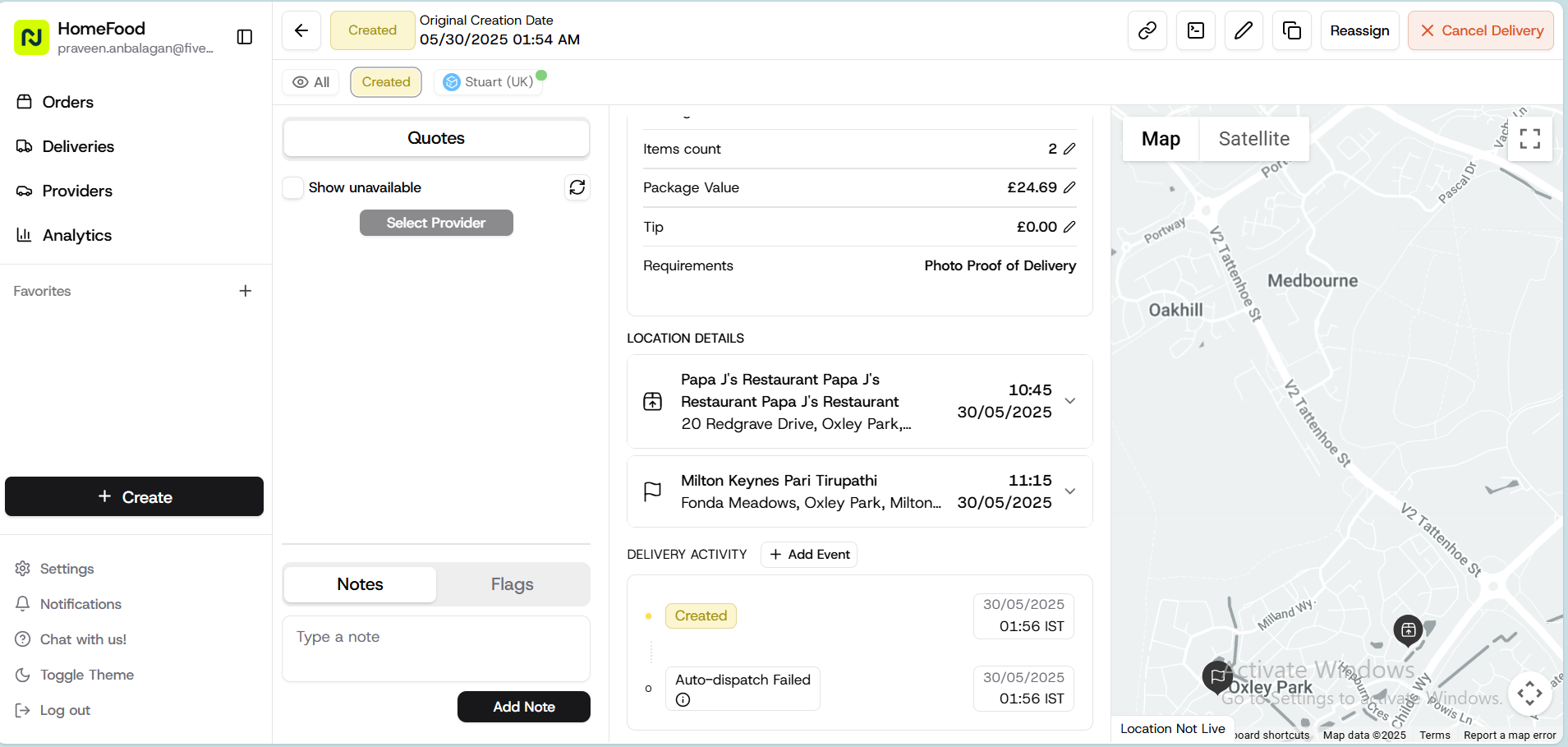he Gut-Brain Connection
At the core of the relationship between food and mental health lies the gut-brain connection. Our gut is often referred to as the “second brain” because it houses a vast network of neurons that communicates with the brain, influencing our thoughts, emotions, and even our behavior. The gut also produces a significant amount of neurotransmitters—chemicals that help transmit messages in the brain, including serotonin, which plays a key role in regulating mood, sleep, and appetite.
What we eat can directly impact the health of our gut microbiome (the community of bacteria and microbes living in our digestive system). A balanced, diverse microbiome has been shown to support better brain health, whereas a disrupted microbiome can contribute to feelings of anxiety and depression.
Nutrients That Nourish the Brain
1. Omega-3 Fatty Acids: Found in fatty fish like salmon, walnuts, and flaxseeds, omega-3 fatty acids are essential for brain health. These fats help to reduce inflammation and promote healthy brain function. Research has shown that people with lower levels of omega-3s are more likely to experience symptoms of depression and anxiety. Incorporating more omega-3-rich foods into your diet may help enhance mood regulation and improve emotional well-being.
2. Antioxidants: Fruits and vegetables, especially those rich in antioxidants like berries, leafy greens, and dark chocolate, help combat oxidative stress—an imbalance between free radicals and antioxidants in the body. Chronic oxidative stress has been linked to mental health disorders such as depression and anxiety. Eating antioxidant-rich foods helps protect the brain from damage and supports overall mental health.
3. B Vitamins: B vitamins, particularly B6, B12, and folate, play a vital role in the production of neurotransmitters that regulate mood. A deficiency in these vitamins has been associated with feelings of irritability, fatigue, and depression. Foods like eggs, leafy greens, legumes, and whole grains are excellent sources of B vitamins and can help support emotional well-being.
4. Magnesium: Magnesium is a crucial mineral involved in over 300 biochemical reactions in the body. It helps regulate stress responses and has a calming effect on the nervous system. Low levels of magnesium have been linked to increased feelings of anxiety and depression. Incorporating magnesium-rich foods like almonds, spinach, avocados, and bananas into your diet can help alleviate stress and promote relaxation.
5. Vitamin D: Vitamin D, often called the “sunshine vitamin,” is essential for regulating mood and warding off depression. Many people are deficient in vitamin D, especially during the winter months when sunlight exposure is limited. Fatty fish, egg yolks, and fortified dairy products are good sources of vitamin D. Alternatively, getting more sunlight or taking supplements can help maintain healthy levels of this vital nutrient.
The Role of Processed Foods
While nutrient-rich foods support mental health, highly processed foods can have the opposite effect. Diets rich in refined sugars, trans fats, and artificial additives can trigger inflammation and disrupt the gut microbiome, leading to an increased risk of anxiety and depression. Excessive sugar consumption, in particular, has been linked to mood swings, irritability, and even symptoms of depression.
A diet high in processed foods can lead to a rapid spike in blood sugar followed by a crash, which can contribute to feelings of fatigue, irritability, and anxiety. Reducing the intake of these foods and focusing on whole, nutrient-dense options is key to stabilizing mood and supporting mental health.
The Impact of Food Timing
In addition to the types of foods we eat, when we eat them can also have an impact on mental health. Skipping meals or going long periods without food can lead to low blood sugar levels, which can negatively affect mood, concentration, and energy levels. On the other hand, balanced meals with protein, fiber, and healthy fats help regulate blood sugar levels and provide steady energy throughout the day.
Mindful eating practices, such as eating regularly, avoiding overeating, and focusing on nutrient-dense foods, can contribute to better emotional regulation and improved mental health.
A Holistic Approach to Mental Health
While food can certainly influence mood and mental well-being, it’s important to recognize that mental health is complex and influenced by a variety of factors, including genetics, lifestyle, sleep, physical activity, and stress levels. A holistic approach that combines a balanced diet with regular exercise, stress management techniques, and adequate sleep is the most effective way to promote mental health and emotional well-being.
Conclusion
The relationship between food and mental health is undeniable. By fueling the body with nutrient-rich, whole foods and minimizing processed foods, individuals can significantly improve their mental well-being. A well-balanced diet supports the brain and gut, regulates mood, and helps reduce stress and anxiety. Incorporating foods rich in omega-3 fatty acids, antioxidants, B vitamins, magnesium, and vitamin D can have a profound effect on mental health, while avoiding processed foods can help prevent mood disruptions.










